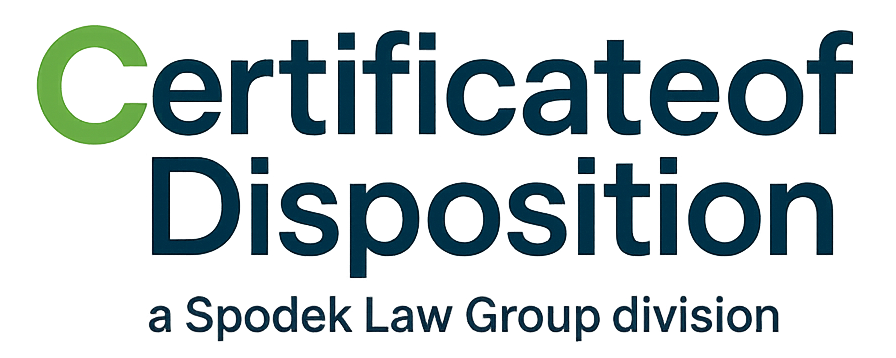Order Your Official Certificate of Disposition—Fast, Secure, Court-Accepted
24 hrs
Average turnaround
100 %
Acceptance rate
We are the leading resource when you need your Certificate. We can help you get it in 24 hours
Court-Verified Accuracy
Every certificate comes straight from the Criminal Court clerk—stamped, sealed, and matched to your docket number. Employers, licensing boards, immigration officials, and judges accept it without question because it’s the original record, not a third-party summary.
24-Hour Turnaround
Complete our online form in under five minutes. We retrieve the file the same business day, email you a secure PDF within 24 hours, and overnight the hard copy if you need it. No courthouse lines, no missed deadlines.
Concierge Support
Unsure which borough issued the case? Need help reading a docket? Our legal team answers calls and chats seven days a week. We track your order from clerk’s desk to your inbox and stay with you until the certificate is in hand.
Hassle-Free Court Record Retrieval
Submit Online Request Form
Borough & Docket Lookup
Clerk Pickup & Certification
Digital & Overnight Delivery
24/7
Certificates emailed the same business day
100%
Every document stamped and sealed by the clerk
4.9 / 5
Based on over 900 verified reviews
Leadership Team
Why Our Clients Love to Work with Us!
Jack Wolf
Carlos Moya
Skip the Courthouse Line—
Your Time Matters
Helping people all over the USA
Court-Certified. Deadline-Ready.
- 24 hr average email delivery + overnight hard copy
- Clerk stamp and raised seal—100 % court-verified
- Live status tracking from courthouse to inbox
Trained Specialists
Every order is handled by staff who have worked inside NYC criminal courts. They know the exact windows, forms, and seals required, so your certificate is retrieved correctly the first time.
Personalized Order
Unsure of the borough or docket number? We cross-reference your name and date of birth against multiple databases and confirm the record before pickup—no guesswork on your end.
Live Status Tracking
Log in to our online dashboard to get updates on your request. Real-time updates keep you in the loop without phone calls.
Court Acceptance Guarantee
If any employer, licensing board, or immigration officer rejects the certificate for authenticity, we’ll replace it or refund you—100 % guaranteed. Your document will be court-sealed, clerk-signed, and universally accepted.
We turn courthouse paperwork into a one-click, 24-hour service.
Our Focus
We retrieve court-sealed Certificates of Disposition—nothing else—so every process is built for speed and accuracy.
Our Method
Courthouse staff handle the pickup while our secure portal lets you order, track, and download without ever leaving your desk.
Our Record
1000+ certificates delivered, 99 % next-business-day success, zero authenticity challenges returned to date

